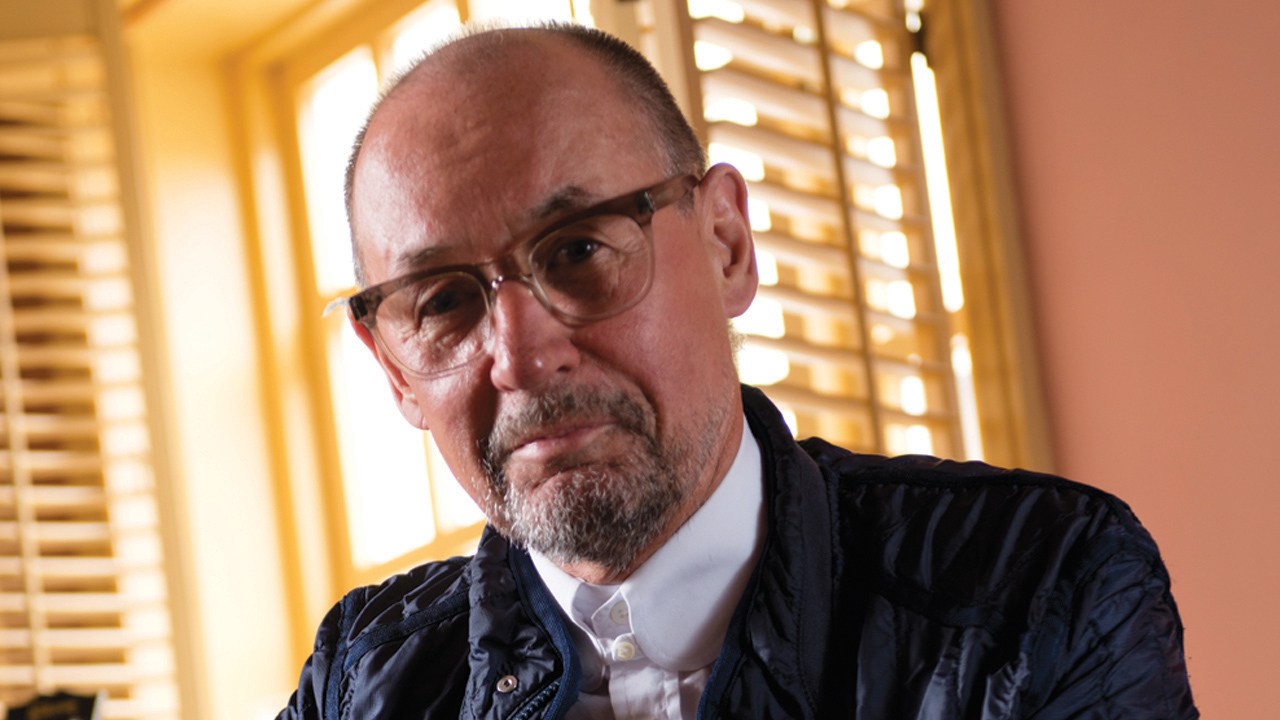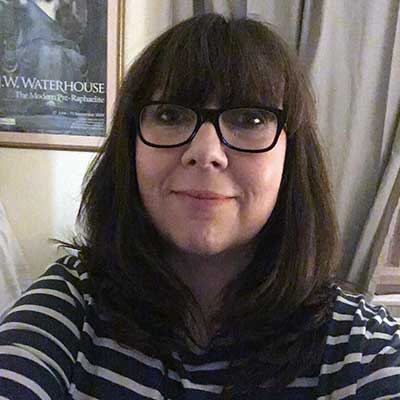The 45s that turned Clapton sideman Andy Fairweather Low on to blues
How the Amen Corner soul boy turned Roger Waters’ right hand was bent and shaped into a blues fan – thanks to a road trip with Eric Clapton.

Select the newsletters you’d like to receive. Then, add your email to sign up.
You are now subscribed
Your newsletter sign-up was successful
Want to add more newsletters?

Every Friday
Louder
Louder’s weekly newsletter is jam-packed with the team’s personal highlights from the last seven days, including features, breaking news, reviews and tons of juicy exclusives from the world of alternative music.

Every Friday
Classic Rock
The Classic Rock newsletter is an essential read for the discerning rock fan. Every week we bring you the news, reviews and the very best features and interviews from our extensive archive. Written by rock fans for rock fans.

Every Friday
Metal Hammer
For the last four decades Metal Hammer has been the world’s greatest metal magazine. Created by metalheads for metalheads, ‘Hammer takes you behind the scenes, closer to the action, and nearer to the bands that you love the most.

Every Friday
Prog
The Prog newsletter brings you the very best of Prog Magazine and our website, every Friday. We'll deliver you the very latest news from the Prog universe, informative features and archive material from Prog’s impressive vault.
“I got interested in picking the guitar up after seeing The Rolling Stones in Cardiff, at Sophia Gardens on February 28, 1964. The impact of that first time set me off, as well as hearing records by Chuck Berry and Otis Redding. By 1965 I was in my first band and Kenny the drummer put on a blues record at his house, an early Chess record, but the next one was Booker T and I immediately just stocked up on stuff like that from Spillers Records in town. “Cardiff’s a port area so lots of clubs, music and new things were brought into our world, just like in Liverpool. It was the black community around Tiger Bay that drove the change in culture. They dominated the fashion, the music, and they dominated the social habits – I mean smoking dope. It was a pretty lively time. We got into that and listening to soul records. Blues came later.
“There was a particular moment when blues overtook my life and that was when I was working with Eric Clapton. In 1971, I was living in London and I got hold of the Robert Johnson early recordings. At that time I thought, ‘These all sound the same to me,’ and carried on listening to soul and a bit of Johnny Winter. I first met Eric when he was recording Slowhand in 1977. But it wasn’t until 1994 when I toured America with him that he played Jimmy Rogers to me in his car. It was a defining moment in discovering the blues. “I’m a learner; I’m not naturally gifted as a player. Eric’s depth and knowledge of all kinds of music, not just blues but early jazz, Bing Crosby, so much other stuff, he put that knowledge into a style of playing that’s like a vocabulary. I understand a lot of what he says.”
JIMMY REED
Bright Lights, Big City
From: Jimmy Reed At Carnegie Hall [Vee-Jay, 1961]
“I heard this in the 60s. From Shame Shame Shame to Big Boss Man, we’re talking about a guy who wrote relatively simple songs, and they’re the hardest ones to write. The riff Jimmy plays is just about as perfect and as simple as you can play, but it says so much. When you start playing guitar, if you get this Jimmy Reed thing down, it opens a door to playing thousands of songs, it lets you dream a little. All it is is a simple little three-chord trick, and it was influenced by Eddie Taylor. I’m still playing this now in my set, still working on getting it right. Jimmy’s got a real place in the jigsaw of blues when a lot of the rest of us don’t even get into the box.“
ALBERT KING
Sign up below to get the latest from Classic Rock, plus exclusive special offers, direct to your inbox!
Blues Power
From: Live Wire Blues Power [STAX, 1968]
“I got to meet a lot of people through working with Eric, but I never met Albert King and apparently that was a good thing! This is from a live album I must have picked up in the 70s and this song, when he hits the notes after his spoken intro, I’ve never heard anything as powerful. Keeping in mind he does a lot of it on the one string, this thing is like a bullet and it will kill you. I find it frightening to hear. I can understand most music playing, and I can imitate a bit of BB cheaply, but I can’t do Albert – he’s completely out there. It’s the most powerful statement of a guitar after vocals I’ve ever heard.”
JIMMY ROGERS
That’s All Right
From: Chicago Bound [Chess, 1950]
“This song is big in my world as from about 1984 to 2007 I had a job as a touring and session guitar player – that’s when I finished working with Roger Waters. I was a rhythm guitar player, playing specific parts. The first time I heard this I was travelling in a car with Eric Clapton in Dallas in 1994. He hit me with this on the stereo, then gave me the cassette. Jimmy Rogers was the king of the turnaround, the licks to back somebody in a combo. I’ve got a bag full of things that I learned from Jimmy – I only wish I could play them when I want to!“
BLIND BLAKE
Southern Rag
From: Southern Rag [Okeh, 1927]
“Blind Blake is a virtuoso player from the 20s – there weren’t many at that time but there was him and Lonnie Johnson. Ry Cooder did Police Dog Blues and Ditty Wah Diddy – these were Blind Blake songs, and he brought them into my world. I practise all the time, always looking for something new to try. I got the album and I focused in on Southern Rag. It’s a man playing a guitar but he’s playing it like a piano – rolling, stride piano playing. I’ve been working on perfecting this for years.”
LIGHTNIN’ HOPKINS
Lightnin’s Boogie/Moving On Out Boogie
From: Lightnin’ And The Blues [Herald Recordings, 1954]
“This is Lightnin’ gone electric. It’s from a double album and when I heard it, Volume 2 got me. Lightnin’ invented this style of playing but, again, who was he listening to? You can hear he’s so comfortable and he’s driving the bass player crazy, who’s trying to follow him but can’t. In the mid-60s we were told that blues had to be an eight or 12-bar. No it doesn’t. His motto was: “Lightnin’ change when he want to change.” I still watch video clips of him – he’s playing with his fingers, and I’m going, “What the hell is going on there?”
MISSISSIPPI JOHN HURT
Candy Man Blues
From: Live At Oberlin College [Okeh, 1927]
“Mississippi John has the most beautiful voice. You think to yourself, “What did they listen to? Who were their influences?” This really brings home that we’re the imitators and they were the originators. Mississippi John’s voice on Will The Circle Be Unbroken and* Since I’ve Laid My Burden Down* is untouchable, alongside such simple picking.”
ERIC CLAPTON
Five Long Years
From: From The Cradle [Duck/Reprise, 1994}
“If I had been on just one of Eric’s albums, I’d like it to have been From The Cradle. Eric opened the door to the blues for me. *From The Cradle *was an all-live recording, no overdubs. But the solo on Five Long Years… talk about fire, talk about passion. When I mentioned the uniqueness of Albert King, there’s nobody else out there that could have done what Eric did. I’m a bit biased, of course [laughs], but Eric’s a great singer as well as a guitarist. Contemporary guitarists have to be able to play but they’ve also gotta be able to sing, that’s the icing on the cake. That’s where Robert Johnson had every apple in the bag. And Eric’s got it too.”
Andy Fairweather Low’s Live From The New Theatre is out soon on DVD/CD: see www.andyfairweatherlow.com for details.
Jo is a journalist, podcaster, event host and music industry lecturer who joined Kerrang! in 1999 and then the dark side – Prog – a decade later as Deputy Editor. Jo's had tea with Robert Fripp, touched Ian Anderson's favourite flute (!) and asked Suzi Quatro what one wears under a leather catsuit. Jo is now Associate Editor of Prog, and a regular contributor to Classic Rock. She continues to spread the experimental and psychedelic music-based word amid unsuspecting students at BIMM Institute London and can be occasionally heard polluting the BBC Radio airwaves as a pop and rock pundit. Steven Wilson still owes her £3, which he borrowed to pay for parking before a King Crimson show in Aylesbury.

